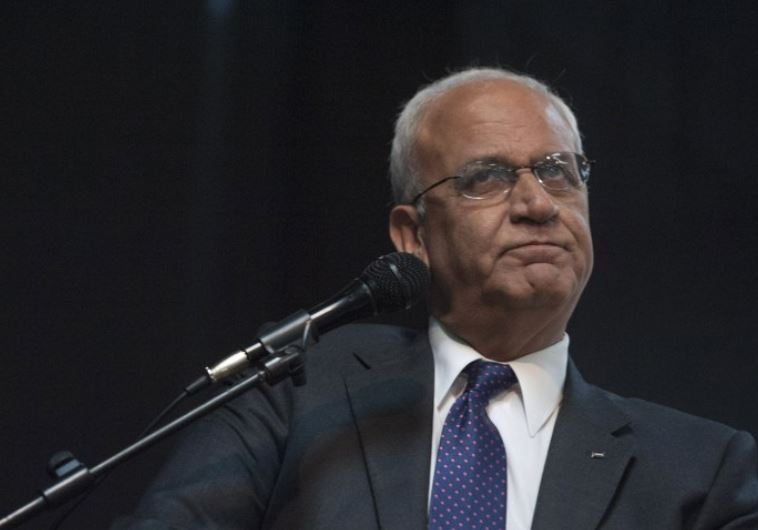Palestinian Authority delegation heads to US hoping to meet with Trump
The Palestinian side hopes the Washington meetings will result in the establishment of bilateral working committees to manage relations with the US.
 Saeb Erekat, the secretary-general of the Palestine Liberation Organization(photo credit: AFP PHOTO)Updated:
Saeb Erekat, the secretary-general of the Palestine Liberation Organization(photo credit: AFP PHOTO)Updated: